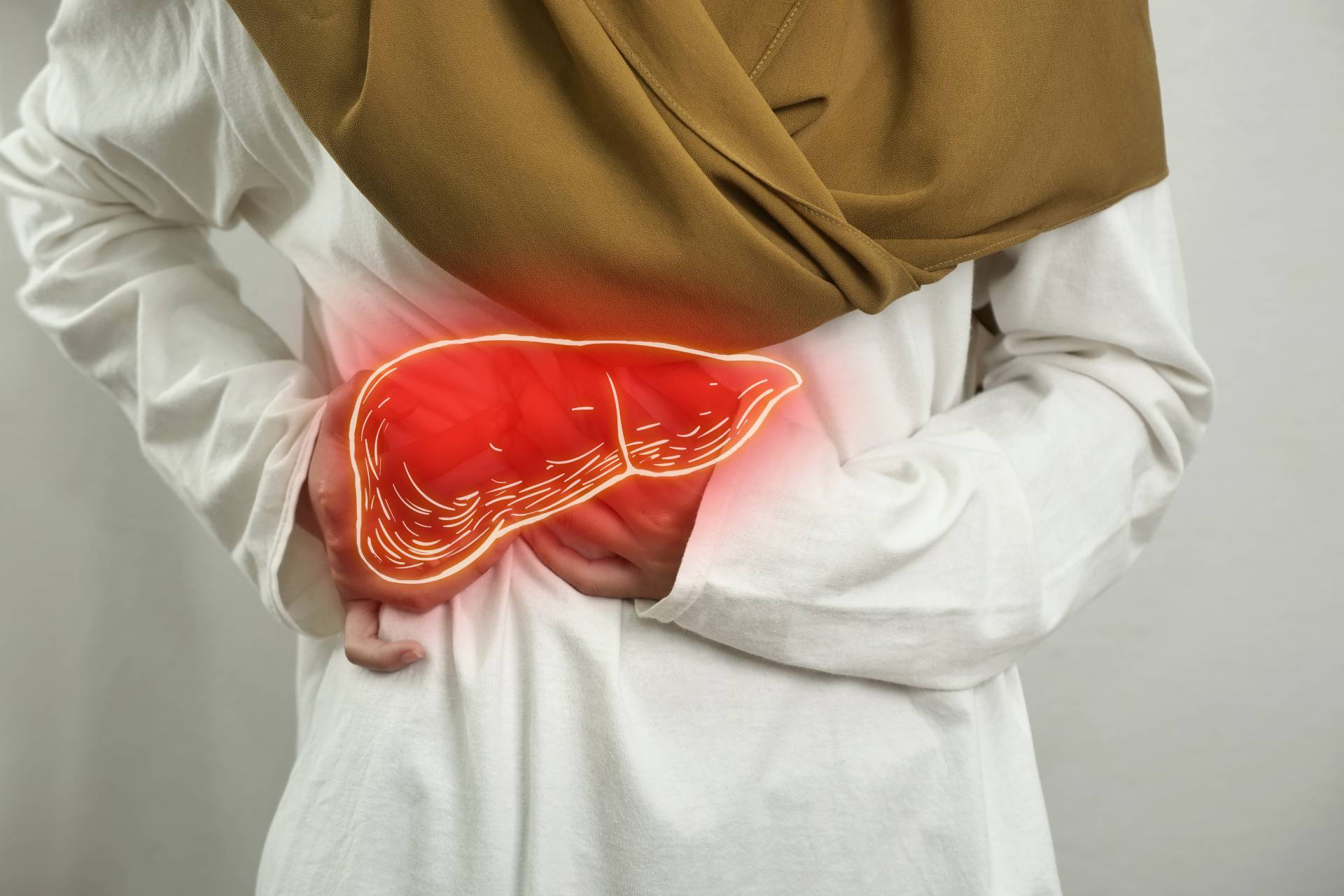FibroScan® in Louisiana
What is FibroScan?
FibroScan is a test utilized by the gastrointestinal physicians at GastroGroup & Endocenter to noninvasively evaluate the liver. Also referred to as transient elastography, the scan uses specialized ultrasound technology to measure the state of fibrosis and steatosis within the liver. Fibrosis occurs when the liver replaces healthy tissue with cicatrix (scar) tissue in an attempt to remedy itself from an underlying condition. Hepatic steatosis is also referred to as fatty liver disease and arises when fat collects inside the liver cells.
Using FibroScan, your Louisiana GI specialists can assess the state and function of your liver, and supply a diagnosis and medical plan without intrusively probing the body to inspect the liver. If you suffer with a liver ailment, schedule GastroGroup & Endocenter to learn if you could benefit from FibroScan technology.

Who is a candidate for FibroScan?
FibroScan analysis may be advised for clients who have initial to progressive liver illness or other conditions. These might include:
- Alcoholic fatty liver disease
- Nonalcoholic steatohepatitis (NASH)
- Certain types of hepatitis
- Syndrome X (insulin resistance syndrome)
- Primary biliary cholangitis (PBC)
- Other kinds of chronic liver disease
- Hemochromatosis
- Cirrhosis of the liver (excessive scarring)
How is FibroScan performed?
A FibroScan exam in Louisiana is normally a convenient method that is accomplished within 10 – 15 minutes. A detector will be placed on your skin right next to your liver. This special sensor emits sound waves through your liver to determine the rate at which point sound travels through the organ. The FibroScan technology then makes a sequence of findings that your GastroGroup & Endocenter GI physician will capitalize on to study the grand total of stiffness (fibrosis) currently in your liver.
How do you understand and translate FibroScan results?
FibroScan results are given according to fatty liver disease (steatosis) grade of severity and fibrosis score. The subsequent charts consist of generalized reports regarding what the outcome of the scan can reveal. You should discuss your results in detail with your GastroGroup & Endocenter gastrointestinal physicians following your FibroScan test.
Steatosis grade: The steatosis findings explain the level of fatty change in the liver and are provided by a CAP score (controlled attenuation parameter), which is measured in decibels per meter (dB/m). The range is from 100 to 400 decibels per meter, and assorted ranges describe various fatty liver grades.
Fibrosis score: The fibrosis result is an estimation of the stiffness of the liver and depicts the extent of scarring that the liver has experienced. Your gastrointestinal specialists will use your FibroScan findings in conjunction with your medical history to discern your fibrosis score. Various liver diseases and diseases can affect the fibrosis score.
- F0 to F1: No scarring/light scarring
- F2: medium scarring
- F3: extreme scarring
- F4: extremely progressive scarring (cirrhosis)
What are the advantages of FibroScan?
Because FibroScan utilizes ultrasound technology, there is minor to no problem correlated with the treatment. FibroScan is a non-invasive imaging procedure and is generally an easy procedure. It enables a wide-ranging examination of the whole liver instead of viewing only a very small segment that happens in a liver biopsy. On top of that, no sedation medication is required for the procedure, it is relatively low-cost, fast, and the outcomes are swift.
FibroScan® FAQs
Should I prepare for my FibroScan test?
You shouldn’t eat or drink anything three hours before your FibroScan test. It is okay to continue to take your daily medications as prescribed, however. Our GI specialists suggest you dress in loose clothes so it’s easy for us to access the right side of your ribcage. Someone from our team will review the required prep instructions with you before the exam so you know exactly what you should expect throughout the FibroScan process.
What liver conditions will FibroScan measure?
The FibroScan test can discover and track the growth of several diseases of the liver, including:
- NAFLD (nonalcoholic fatty liver disease)
- Alcoholic liver disease
- NASH (non-alcoholic steatohepatitis)
- Hepatitis B or C
- Hemochromatosis
Is there a difference between FibroScan and an ultrasound?
The FibroScan test is essentially an ultrasound and uses the same technology, called transient elastography. However, FibroScan and ultrasounds are similar, FibroScan was developed specifically to evaluate liver stiffness and, therefore, is much more sensitive to picking up issues in the liver than a normal ultrasound.
Is FibroScan better than a liver biopsy?
The FibroScan is a great nonsurgical alternate option to the biopsy of the liver. However, there may be certain situations in which a biopsy of the liver could be favored. This could include certain situations when a person has a pacemaker or defibrillator, is pregnant, or has fluid in the abdomen. Research has found that, additionally, results could be inaccurate in people who are considered obese. Therefore, our GastroGroup and Endocenter providers will work alongside you to decide if the FibroScan test or a standard liver biopsy is better for you.

